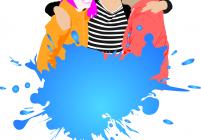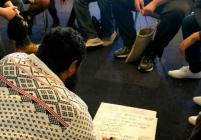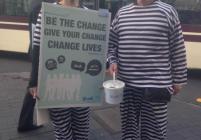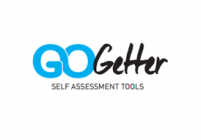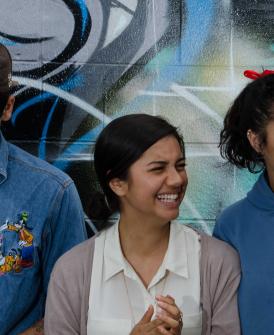
Supporting Friends
-
Relationships >

Relationships
Friends, family, boyfriends, girlfriends...
-
Sex >

Sex
Being ready, consent, safety and more
-
Abuse and violence >
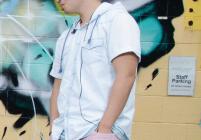
Abuse and violence
Physical, sexual, emotional and support
-
Bullying >

Bullying
Peer pressure, getting help & helping others
-
Your body >

Your body
Feeling good, exercise and your health
-
Your mind >

Your mind
Feelings, thoughts, getting help and supporting friends
-
Drugs and Alcohol >

Drugs and Alcohol
Staying safe, partying, tips
-
Beyond school >

Beyond school
Study, jobs, money, help & travel!
-
Our society >

Our society
The world around us
- GoGetter >
-
Learning >
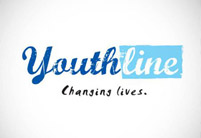
Learning
Can't find what you are looking for?
Need Support or want to talk?
Contact us, by clicking here, we are here to help!
Info Zone »
Abuse and violence »
Supporting Friends
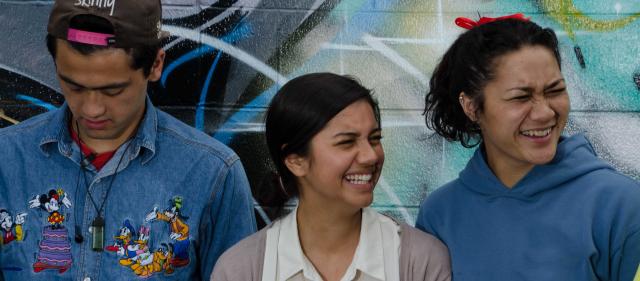
Supporting Friends
Signs your friend might be getting abused
- Unexplained bruises, welts, cuts, scratches, burns, fractures.
- Very sad, moody, depressed, withdrawn, angry or aggressive.
- Steals food because they are hungry and there is never enough to eat at home
- Jumpy, uncomfortable or careful around a certain adult or places.
- Violent towards others and animals.
- Can’t remember how they got hurt or give an explanation and then later change it or say something different
- Acting much more sexual than others their age, sometimes with people much younger than them.
- Uses lots of drugs and alcohol.
- Self-harms and/or feels suicidal.
- Their partner is really controlling, jealous, threatening or intimidating or won’t allow you to see their friends or hang out anymore.
My friend has told me they’ve been abused… what do I do?
- The fact they have told you shows they really trust you, so listen and be there for them
- You don’t have to solve the problem or try to make everything better for them. Often friends just want support, comfort or someone to tell.
- It’s really good to get some support for yourself too so you don’t feel alone in supporting them.
- Believe what they have told you – lots of people who go through this kind of stuff don’t tell because they are afraid no one will believe them.
- If your friend isn’t in danger of it happening again, you can ask them if they would like to talk to someone professional about what they have been through. People deal with this stuff in their own time and their own way.
- You could offer to help them make phone calls, or go with them to get support.
Help! I’m worried about my friend’s safety?
- If you think the abuse may be happening to them on a regular basis or could happen very soon, or you are worried they might harm themselves or harm someone else, you HAVE TO tell an adult - even if you have promised your friend you wouldn’t say anything.
- This could be a family member, teacher, counsellor, nurse or coach at school, a doctor, a youth group leader, or Youthline. They can help support you and your friend.
- You and your friend could brainstorm together about what they can do to keep safe, but even if they don’t want to do anything, it’s important your friend is protected from further harm.
- They might be angry at first, but know in your heart you are doing the right thing to protect them. Chances are they are just really scared, but since they have told you – they are reaching out for help.
- If your friend is suicidal, click here.
Who can help?
- If it is an emergency, contact 111.
- For a sexual assault support/crisis service near you, click on this link
- Your whanau: This could be a parent, an aunty, grandparent or someone else in your whanau
- Friends’ parents
- Your school: a teacher, counsellor, nurse or coach at your school
- Your youth group leader
- Your doctor
- Youthline: Call 0800 37 66 33 or free TXT 234
- A police officer
- A youth worker
- A social worker
- If you are a female and the abuse is happening in your relationship, you can contact Women’s Refuge on 0800 733 843 or SHINE on 0508 744 633 for advice, support and information
- If the person is under 17 years old and may not be safe at home, contact Child, Youth and Family on 0508 326 459
Need to talk to someone?
Kia ora - tamariki ma
Contact us, we are here to help!



